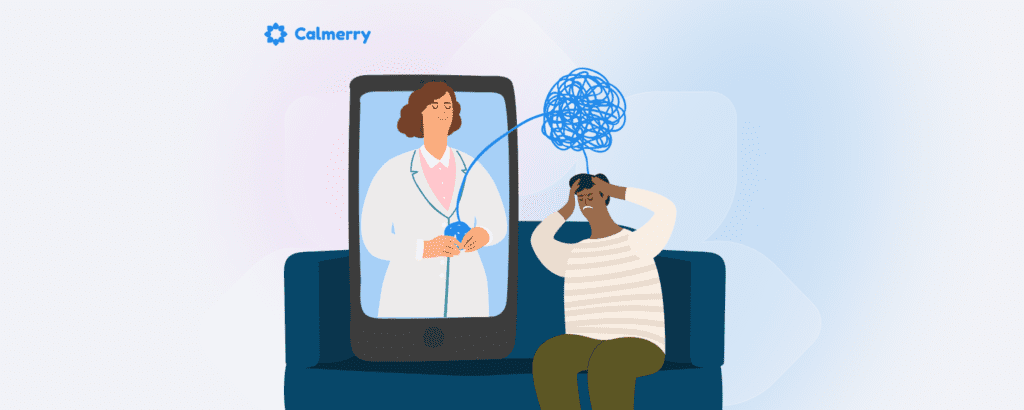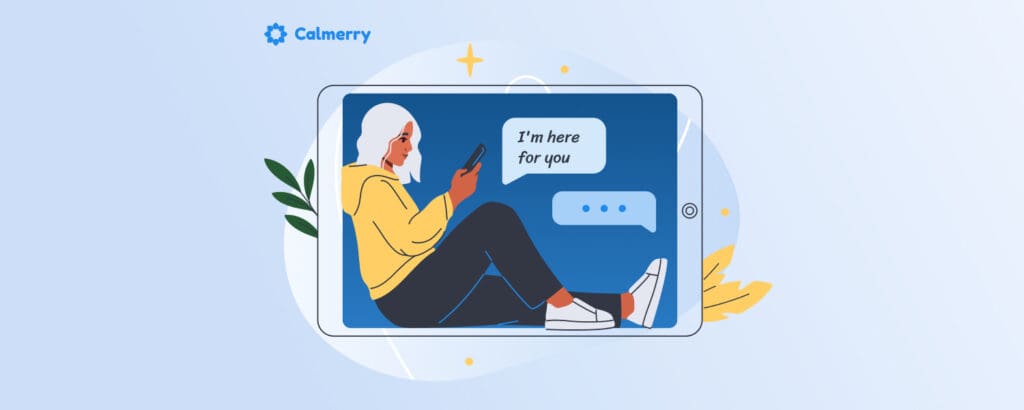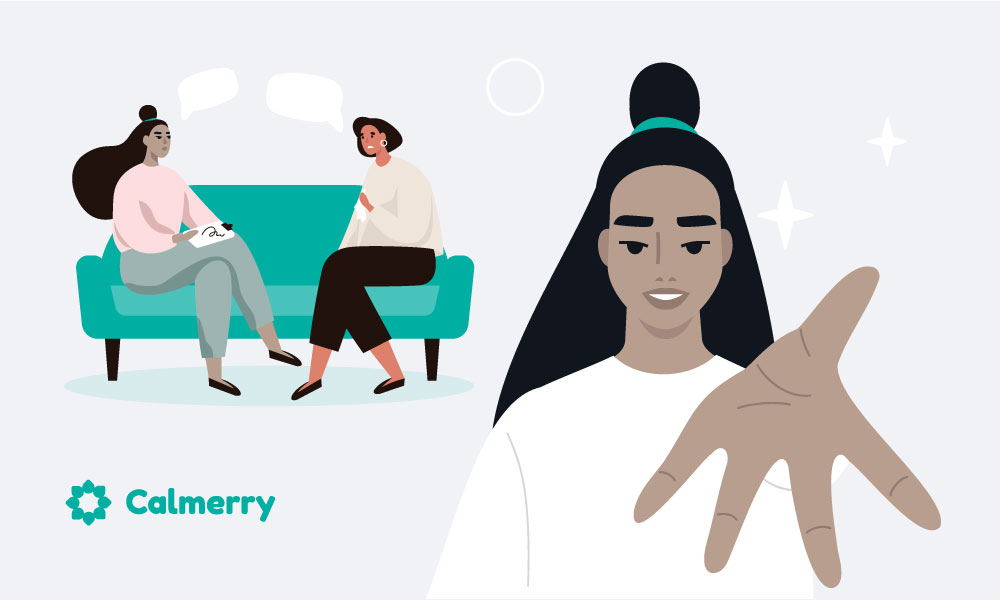What Is Psychoeducation and Why Is It Important?
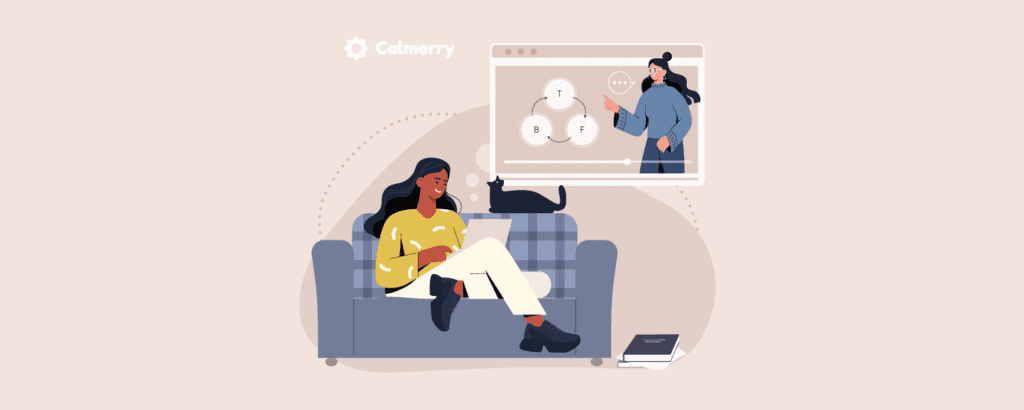
In this article
In mental health, psychoeducation was formally introduced in 1980 by the researcher C. M. Anderson, who used it with patients diagnosed with schizophrenia as a method of reducing relapse rates.
The study looked at the impact of providing education to family members of the patients, and the results showed this education reduced relapse rates.
Now, psychoeducation is recognized as an essential component of the therapeutic process when treating different mental health disorders.
But what exactly does it mean? We’ll talk about it in this article.
What is psychoeducation in therapy?
Psychoeducation is a therapy intervention where the therapist provides people with information about their diagnosis, symptoms, and treatment methods.
Psychoeducation is not just sharing information with the client — it refers to a structured, systematic, and didactic method of providing knowledge about a specific illness. It also integrates emotional and motivational aspects.
The goal of psychoeducation is to help people with mental health conditions understand their diagnosis, learn to manage their symptoms, and thrive despite the condition.
Understanding these components, especially how their symptoms meet criteria for a specific diagnosis, can be extremely validating to the individual in and of itself. Much like when we go see a medical doctor for symptoms and are given a definitive answer as to what the symptoms mean, as opposed to feeling helpless and anxious about what is happening to us. Diagnosis then helps set the stage for education on a treatment plan following best practice recommendations as to how to effectively relieve or improve the condition.
– Tiffany Lovins, Licensed Mental Health Counselor (LMHC)
Psychoeducation is used to provide clients with critical information about different psychological concepts and mental health terms, their specific problems, and the relationships between thoughts, emotions, and behaviors.
Most major therapeutic orientations – CBT, DBT, ACT, MBCT – rely heavily on psychoeducation as part of treatment.
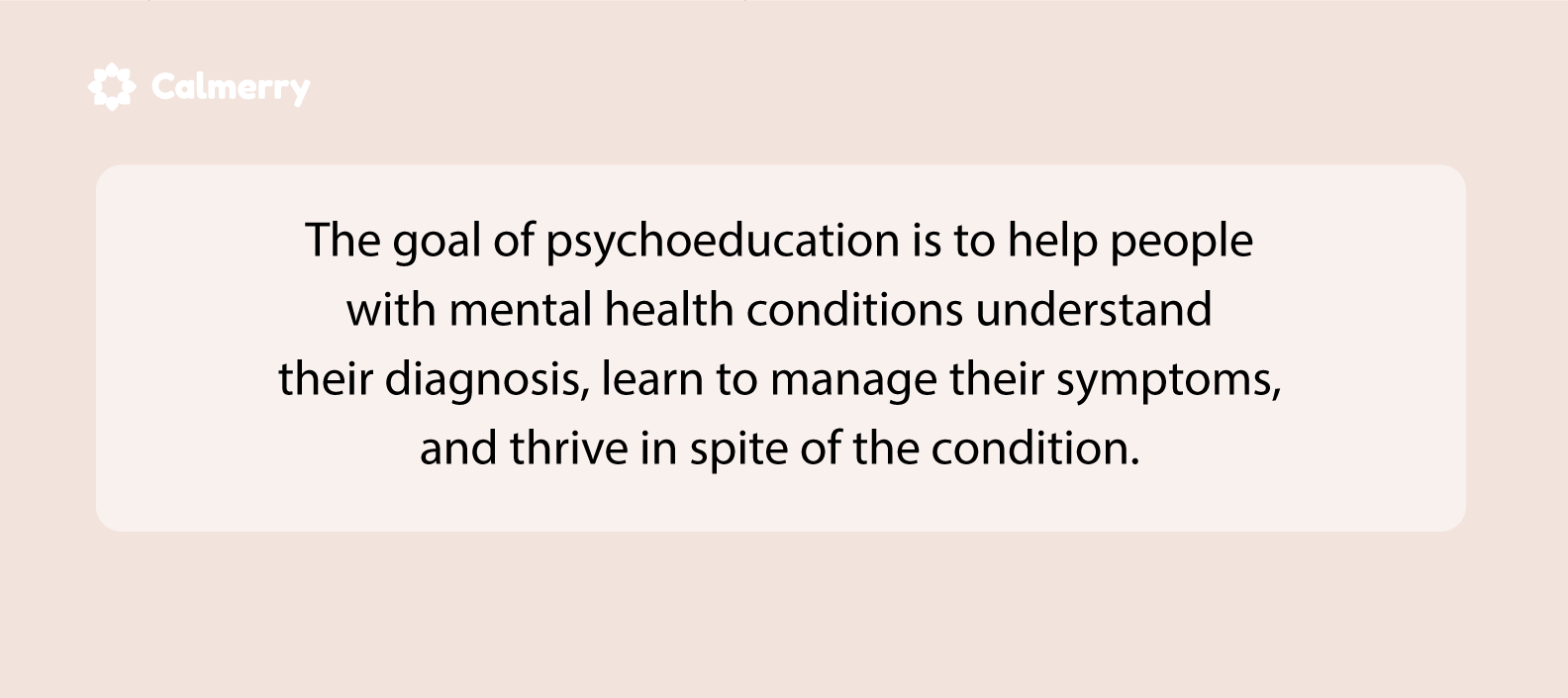
You’ll get a strong knowledge base that will help you be involved and adhere to treatment and have a sense of control through understanding what you’re experiencing.
Psychoeducation can provide you with tools to set your treatment goals, overcome challenges as you progress through therapy, and develop skills to deal with future problems and stressful situations.
What is an example of psychoeducation?
Psychoeducation empowers clients and encourages them to collaborate with their therapist and develop an appropriate treatment plan based on their specific symptoms, unique life experiences, and needs.
A therapist won’t tell you what you must do or even should do. They will just provide you with accurate information about your diagnosis and treatment options. And you can use this information to decide how to move forward and what treatment options to choose.
How does psychoeducation work?
Psychoeducation can take on different forms – it depends on the type of treatment and its specific goals.
Most therapy providers educate their clients about:
- Their illness or problem
- The expected course of treatment and the outcome
- Potential risks they can expect
Psychoeducation can also mean teaching you specific coping skills that you can use to manage your symptoms. They include strategies for mindfulness, problem-solving, emotion regulation, communication, distress tolerance, and assertiveness.
You’ll be more likely to use coping skills successfully if you understand why a specific skill might be helpful and how it works.
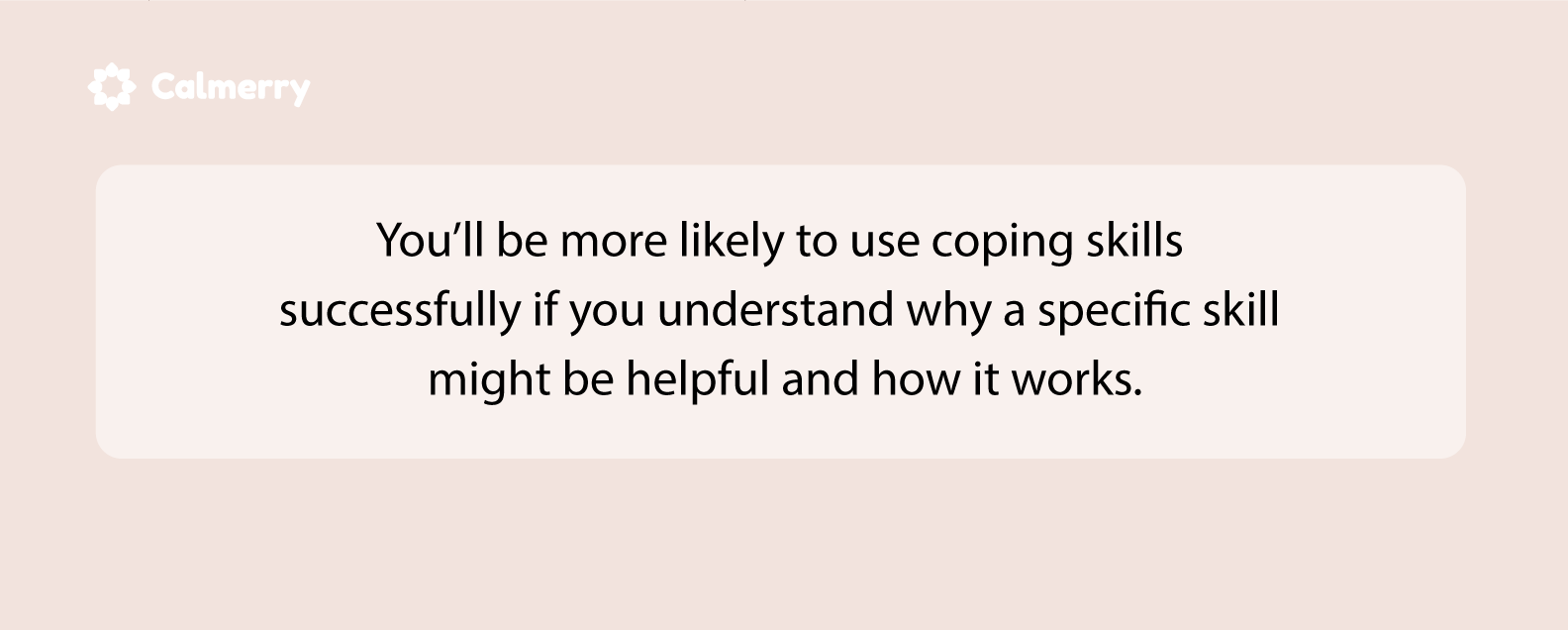
Psychoeducational counseling can occur in individual or group sessions that include a few clients with similar illnesses, a client and their family, or several clients and their families (multiple-family groups).
Online self-help groups can also be an option. Online psychoeducational interventions include discussion forums, videoconferences, webinars, and interactive tasks.
Who needs psychoeducation?
Individuals
A short answer is – everyone, any individual.
Research shows that people of different ages, backgrounds, and interests can benefit from it. People can better understand the mental issues they are addressing and view their illnesses as treatable conditions rather than shameful diagnosis.
They can ask informed questions about their symptoms and the therapist’s recommendations that may help them, and they are more motivated to adhere to treatment.
Family members
When appropriate, family members can also benefit from psychoeducational.
Therapists can teach them about the origins of the client’s illness and experience, how daily behaviors and challenges are directly influenced by client’s symptoms, how to effectively interact with the client, and what to avoid during interactions.
Family psychoeducation is especially important in dealing with severe mental disorders.
Children
And if the client is a child, mental health professionals often educate parents about how the child’s symptoms might:
- Interfere with their ability to carry out daily functions
- Impact the client’s social and emotional development
- Impact learning and school performance
They can also provide recommendations about appropriate discipline.
Parents
Therapists can also help parents understand how their parenting styles contribute to the mental health or behavioral concerns of their children.
Providing psychoeducation related to evidence-based best practices for parenting, correlated to diagnosis and behavior challenges, can reduce feelings of powerlessness in an objective way that does not blame or induce guilt for the parents.
– Tiffany Lovins, Licensed Mental Health Counselor (LMHC)
What are psychoeducational activities?
Psychoeducation is a powerful tool that educates people about their psychological experiences and the treatments available to them and encourages personal self-discovery and growth.
It can include a wide range of psychoeducation activities:
- Information about treatments, symptoms, resources, etc. that a therapist gives verbally in a therapy session
- Interactive videos, audio, and podcasts, and written materials, such as information handouts, guides, quizzes to work on new skills between sessions
- Exercises or homework tasks where people are encouraged to discover information for themselves, for example, when tracking daily moods, writing about emotions and thoughts in a journal, or completing different worksheets.
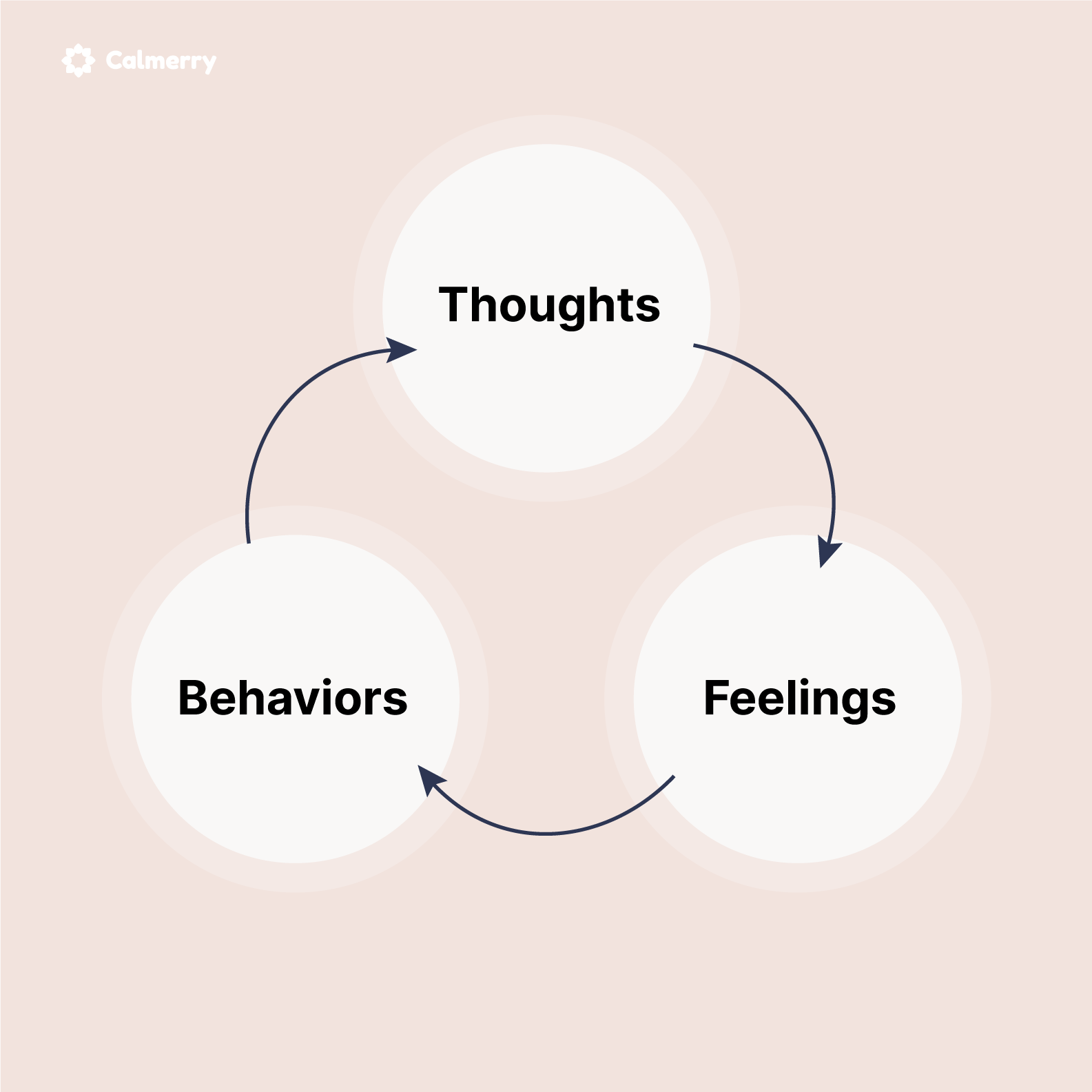
Is psychoeducation effective?
Psychoeducation is an important component of the therapeutic process. It has been found to improve treatment outcomes for different mental health conditions.
Conditions that are commonly addressed with psychoeducation include:
- Depressive disorders
- Anxiety disorders
- Neurodiversity (ADHD, autism spectrum disorder, etc.)
- Substance use disorder
- Bipolar disorder
- Schizophrenia
- Personality disorders
- Traumatic experience
Psychoeducation can help:
- Reduce symptoms of these disorders
- Improve the quality of life
- Encourage a positive attitude toward treatment
- Develop social skills and problem-solving abilities
- Improve self-management behaviors and self-care
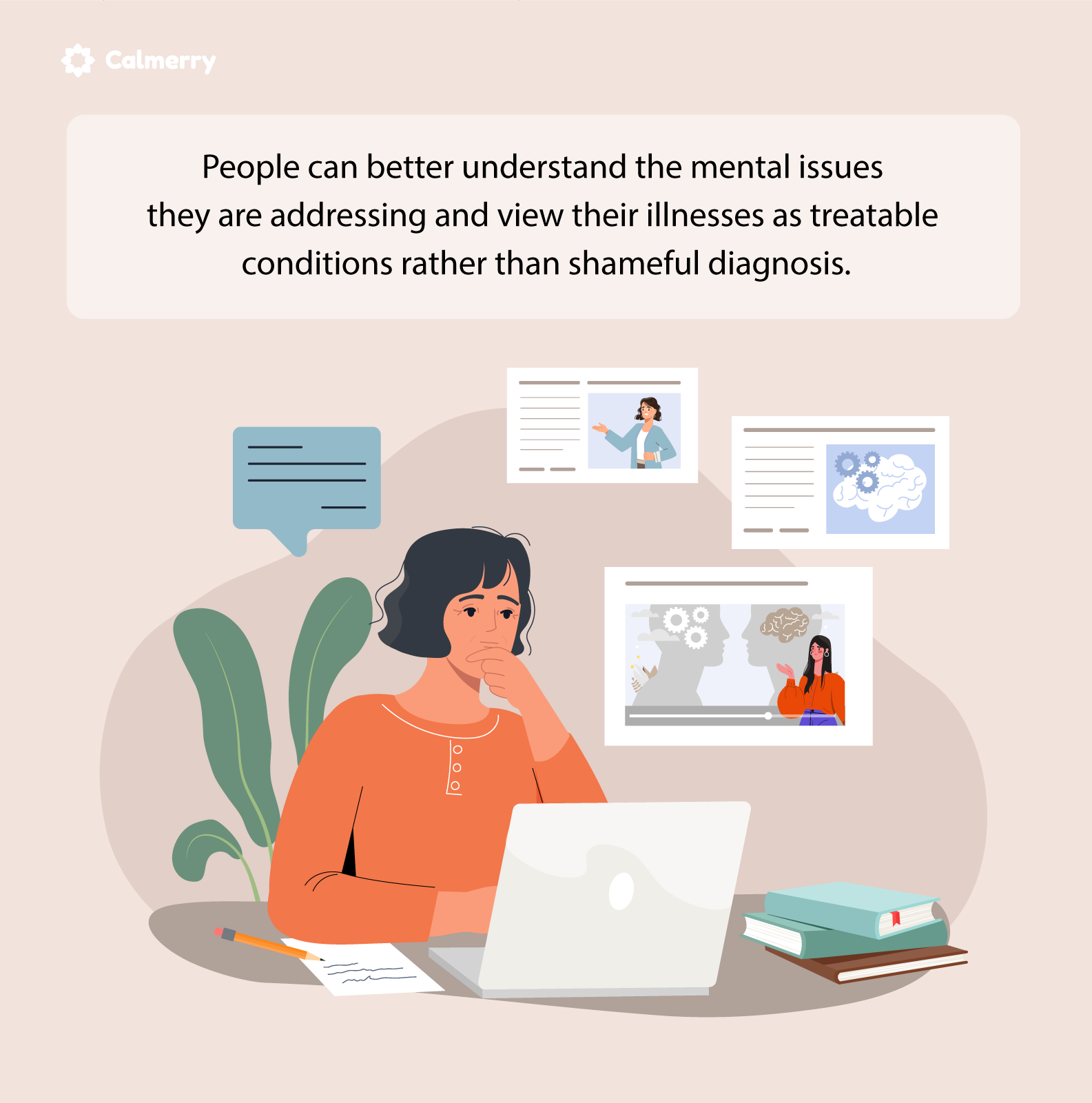
Final thoughts
Psychoeducation is an evidence-based psychotherapeutic intervention for people with mental illness and their families to help them understand the relationships between thoughts, emotions, and behaviors.
It answers their “whys” and equips people and their families with the relevant information and essential skills they need to cope with a variety of mental health conditions.
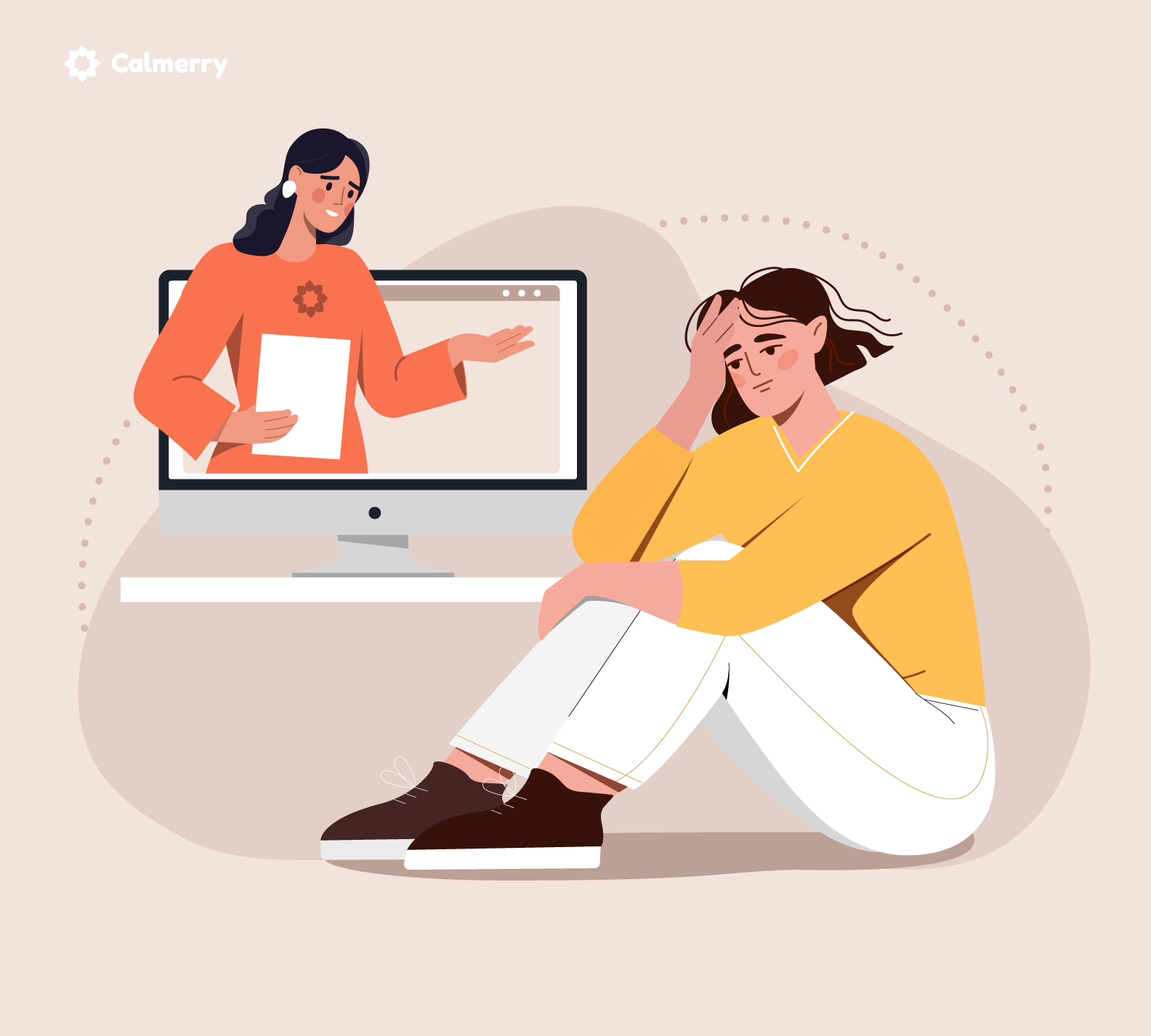
Psychoeducation can empower people with mental illnesses to take an active role in the treatment process and increase their motivation to develop skills that will help them live a more fulfilling life.
You’ll get the most out of psychoeducational activities if you actively participate in them, learn new information, and do homework to practice new skills.
Start your therapy journey on Calmerry
If you have any mental health concerns, Calmerry can connect you with a licensed therapist online who can provide you with tools to understand your problems better and manage them in healthy ways.
Start with a brief survey – and meet your therapist in 1 hour.
online therapy
live video session

